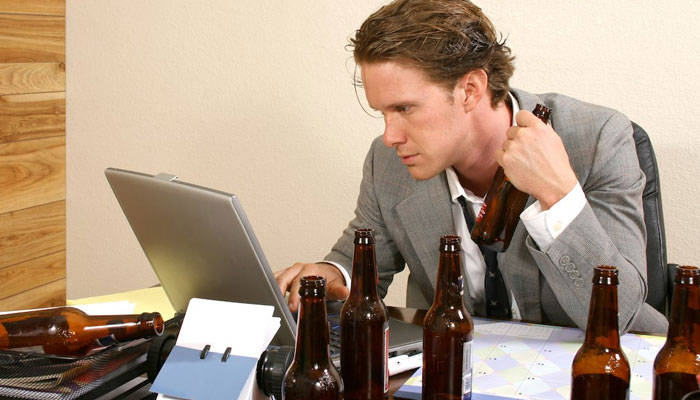Here are 13 signs that your loved one is a functional alcoholic
'Functional alcoholism,' refers to individuals who manage to navigate day-to-day existence without a breakdown
December 26, 2023

As the festive season unfolds, bringing about a myriad of social gatherings and celebrations, it's essential to remain vigilant to the signs of functional alcoholism that may hide beneath the surface of seemingly ordinary lives.
Coined as 'functional alcoholism,' this term refers to individuals who, while dependent on alcohol, manage to navigate day-to-day existence without an obvious breakdown in their personal lives.
Psychologist Lee Hawker-Lecesne, associated with The Cabin, emphasises the fallacy of considering functional alcoholism as a sustainable state. He contends that alcoholics, at best, expend an excessive amount of energy maintaining appearances. The intricate web of strategies they deploy to mask their underlying issues is often exhausting, leading to a double life with concealed struggles.
1. They can’t drink in moderation, but maintain the belief that they aren’t drinking to excess. They don't appear to complain of hangovers.
2. They are unable to socialise without a drink or make excuses to avoid socialising when drinking isn’t an option. They drink more than everyone else, too, and may even obsess over drinking.
3. They deny their drinking problem and may be flippant or joke about it. They might become defensive if challenged. It may be harder for them to see they have a problem if others around them enable them since they do not fit the stereotype of an alcoholic.
4. They claim they drink expensive alcohol to ‘prove’ they don’t have a problem.
5. They have mood changes, appearing angry, irritable or annoyed at times. They could even see a whole personality shift once they are drinking.
6. They undertake dangerous behaviours such as driving under the influence of alcohol.
7. They drink alone, secretly or at unconventional times. Have you noticed your loved one is sneaking off for some time, before coming back more drunk?
8. They experience blackouts, having no or little memory of the day or night before, things they did or said to others.
9. They store alcohol in secret places, such as in their car, sheds, clothes or garage, which you may come across yourself.
10. They have a high tolerance to alcohol, meaning they need to drink more and more alcohol to feel any of the effects of alcohol. Perhaps you've noticed they can drink three drinks to everyone else's one, but seem on the same level.
11. They show signs of withdrawal symptoms when they stop drinking or it is not available to them, such as nausea, headaches, fatigue, shaking, shivering and vivid dreams.
12. They say they need alcohol to relax and enjoy themselves after a busy day or week. At Christmas, it will be easy for a person to say they are drinking 'because it is Christmas'.
13. They rationalise their alcohol consumption and use it as a reward. For example, they may say they’re treating themselves to a drink after completing a project at work. They will find no excuse for drinking.









